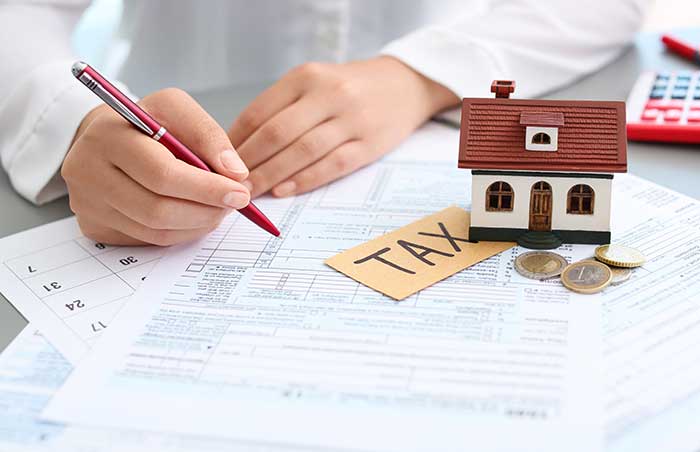Property ownership remains one of the best investment portfolios in the country. Many Americans save for years to buy their own homes, and the highlight of this journey is holding the keys to their home. With homeownership, also comes paying taxes on the ownership of that property. If you’re a property owner in New York, you qualify for a deduction from federal income taxes for tax paid on real estate and personal property such as RVs or boats.
For New Yorkers, who face one of the highest tax burdens in the country, any relief on their tax payments is welcome. A recent study compared the tax burden in the country across three categories; property taxes, individual income taxes, and sales and excise taxes as a share of total personal income in the state. The survey found the average New Yorker’s tax burden was 12.28%, which is the highest in the country.
What is a Tax Deduction?
Your total tax liability depends on your taxable income. A tax deduction lowers your taxable income to lower your tax liability. In tax law, deductions are expenses, which you incur in a year that have a reductive effect on your gross income. These expenses are deducted from your gross income to determine how much tax you should pay.
Deductions fall under different federal and state tax codes. While these deductions are available in the tax law, it’s up to the taxpayer to apply for them in their tax filings.
Property Tax Deduction Explained
As a property owner in New York, you’re eligible for a federal tax deduction on your property taxes.
Property tax levied by New York state, a county, or a town is deductible when you are calculating your federal tax liability. The tax deductions apply only to personal property you own. You can deduct property taxes on your primary home, co-op apartment, vacation homes, and land. Deductions don’t include expenses incurred to renovate, improve, or beautify your home.
Before 2018, you could claim the full tax bill for property tax deductions. This changed when the Tax Cuts and Jobs Act capped property tax deductions starting in the 2018 tax year, which set a limit of $10,000 for joint filing and $5,000 for single filers. You can only claim this deduction if you itemize your deductions on your tax form. A taxpayer should itemize deductions if the sum of all their eligible itemized expenses is greater than the standard deduction allowed in a given tax year.
If you buy a property that carries delinquent tax (unpaid taxes) and pay this liability, this is part of the purchasing cost of the property. You can’t include it in your tax claim as a deduction. If you buy a property where the previous owner had paid taxes on the property for part of the year, those property taxes are not deductible on your taxes for that year.
The tax deduction only applies to tax collected annually by local or state governments.
As stated earlier, you can only take the property tax deduction if you itemize your deductions. This is true for mortgage interest as well. Under the Tax Cuts and Job Act, homeowners who deduct mortgage interest are limited to the amount they pay on $750,000 worth of debt, down from $1 million. Interest on homes bought on or before Dec. 15, 2017, is grandfathered in at the previous rate.
For tax year 2020, the standard deduction for couples filing jointly is $24,800, single filers is $12,400. For tax year 2021, the standard deduction for couples is $25,100, single filers is $12,550. Because the standard deduction doubled in 2018 and is increasing through the 2021 tax year, it is more than likely that fewer homeowners will claim the property tax deduction.
Need Some Help Lowering Your Annual Property Taxes?
If you live on Long Island and are currently paying high rates for property taxes, we understand your struggle. At Heller & Consultants Tax Grievance, we have an extraordinary record in helping you minimize your property tax burden. And, you won’t incur any cost until we successfully lower your property taxes. Give us a call for a free consultation today or apply online here.


